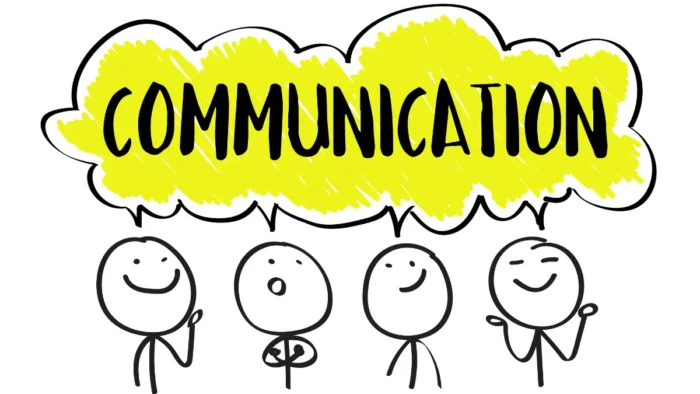Communication in any business is a pivotal part of the operations that happen daily. It forms the spine of the different departments in your business, aligning them with the mission of your business. Communication echoes service delivery to your customers as the objective.
Good communication in a business promotes productivity and profitability. A business with seamless communication between the stakeholders is akin to success. Communication between external partners like the government, suppliers, and the customers needs t be sailing smoothly if success is to stand.
What Are the Two Types of Communication?
Communication is divided into two, with each representing the different sectors that the business affects.
1. Internal communication
Entails the day-to-day interactions between business employees and the management. It is further sectored into:
- Downward communication- information moves from management down to subordinates of an organization. They are mainly used to give instructions and delegate duties.
- Upward- Here employees relay messages to management. It may be through emails or physical through sectional heads and supervisors to report on complaints and submit projects.
- Horizontal/lateral communication- peer to peer, i.e., between different departmental management, among employees, etc.
2. External Communication
This involves communication between the business and other entities outside the business operations, but they affect the operations. These include interactions with customers, the government, consultants, suppliers, etc.
Ways to Improve Communication in Your Business
Constructive feedback is a purposeful way to appreciate your employees or rectify them. You can go ahead and offer to assist in areas where they are lagging instead of trashing them and criticizing them harshly. In a statement, advisors at https://alfredlondon.com/ show that poor communication not only disorients the affected worker but also sets a bad precedent for other employees.
Embrace technology that enables smoother communication and task management in your business. Investing in tools like slack gives provision for interaction between workers, sharing information in a fast and current way. Information is shared faster, and contributions are less formal, so much more approachable than emails.
Conduct seminars and workshops to teach effective communication. It’s a healthy way to boost your rate of communication in the workplace. It offers new insights into what you can implement and what seems not to work so you can rectify it. It is also a way to empower your employees as they understand better and thereby decreasing conflicts. They are also able to deal with external partners like customers and suppliers well.
Listening to what your employees have to say on issues upholds good management and helps make informed decisions that affect them. Alternatively, listening to customers’ needs is a good move to ensure client loyalty. The client feels that you are taking their interests first, and you want to serve them and not take their money.
Role of Communication in Business
Effective communication is how management and staff engage with one another to accomplish organizational objectives and be more connected with the fundamental business needs. Its primary goal is to enhance organizational procedures, eliminate barriers, keep workers engaged and minimize mistakes.
1. Encouraging teamwork
Teamwork allows for more work to be completed in less time. Employees can collaborate to solve an issue and brainstorm on possible solutions for projects.
2. Boosts customer service
Your customers will be able to get more from your business in purchases. Listening to customers and understanding their needs, and keeping their preferences first always pays off.
3. Promoting productivity
Business productivity measurement is against the output of the enterprise. This significantly increases when duties are clear, and reports are drawn efficiently.
4. Reduces work conflicts
Work-related conflicts, especially between workers and management, are a result of broken communication. Sometimes the information disseminated to the workers from the management is not clear enough, which leads to blaming games. A good communication strategy ensures that conflict resolution is amicable, where each party is satisfied with the outcome.
5. Sustaining your workforce

When employees feel like they are part of the business, they will rarely move out. The barrier between management and the staff is a major turnoff for most employees. They feel that you don’t consider their welfare, only about what they can do for the business. This toxic perception makes your employees quit as soon as another opportunity comes up.
There are undoubtedly several reasons why effective communication may contribute to your organization’s success. Effective communication eases the job to be done and helps the management relate well with employees. Regular communication has a significant influence on productivity, employee satisfaction, and income. Keep these points in mind to ensure that your organization’s communication quality continues to improve and thrive.





